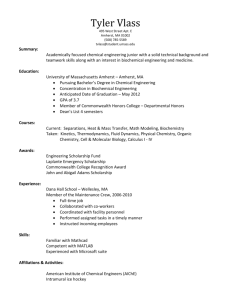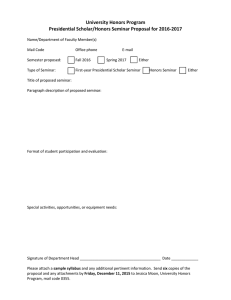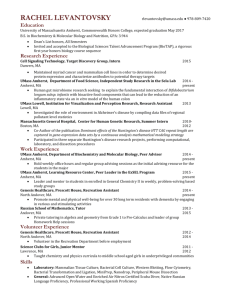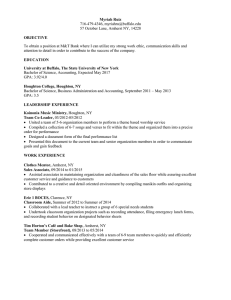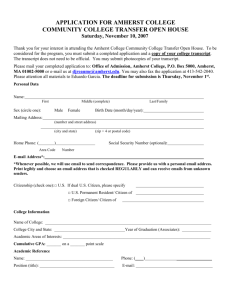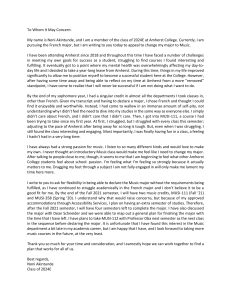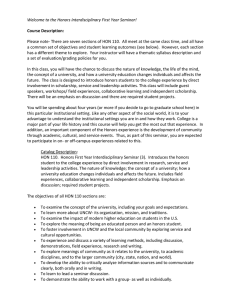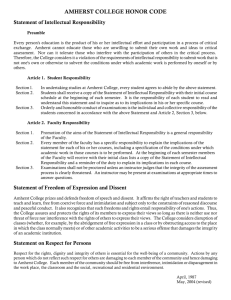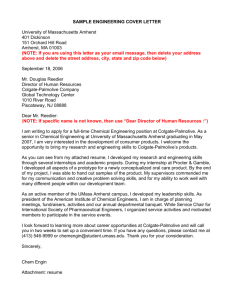Legal Studies 591 - University of Massachusetts Amherst
advertisement
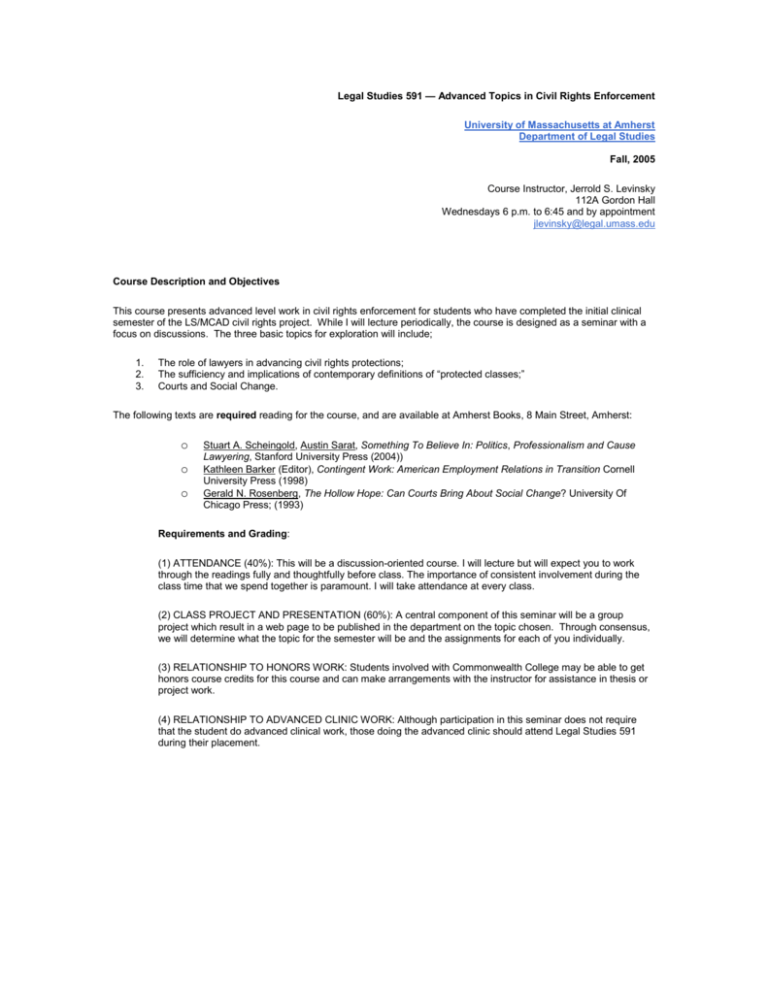
Legal Studies 591 — Advanced Topics in Civil Rights Enforcement University of Massachusetts at Amherst Department of Legal Studies Fall, 2005 Course Instructor, Jerrold S. Levinsky 112A Gordon Hall Wednesdays 6 p.m. to 6:45 and by appointment jlevinsky@legal.umass.edu Course Description and Objectives This course presents advanced level work in civil rights enforcement for students who have completed the initial clinical semester of the LS/MCAD civil rights project. While I will lecture periodically, the course is designed as a seminar with a focus on discussions. The three basic topics for exploration will include; 1. 2. 3. The role of lawyers in advancing civil rights protections; The sufficiency and implications of contemporary definitions of “protected classes;” Courts and Social Change. The following texts are required reading for the course, and are available at Amherst Books, 8 Main Street, Amherst: o o o Stuart A. Scheingold, Austin Sarat, Something To Believe In: Politics, Professionalism and Cause Lawyering, Stanford University Press (2004)) Kathleen Barker (Editor), Contingent Work: American Employment Relations in Transition Cornell University Press (1998) Gerald N. Rosenberg, The Hollow Hope: Can Courts Bring About Social Change? University Of Chicago Press; (1993) Requirements and Grading: (1) ATTENDANCE (40%): This will be a discussion-oriented course. I will lecture but will expect you to work through the readings fully and thoughtfully before class. The importance of consistent involvement during the class time that we spend together is paramount. I will take attendance at every class. (2) CLASS PROJECT AND PRESENTATION (60%): A central component of this seminar will be a group project which result in a web page to be published in the department on the topic chosen. Through consensus, we will determine what the topic for the semester will be and the assignments for each of you individually. (3) RELATIONSHIP TO HONORS WORK: Students involved with Commonwealth College may be able to get honors course credits for this course and can make arrangements with the instructor for assistance in thesis or project work. (4) RELATIONSHIP TO ADVANCED CLINIC WORK: Although participation in this seminar does not require that the student do advanced clinical work, those doing the advanced clinic should attend Legal Studies 591 during their placement.
